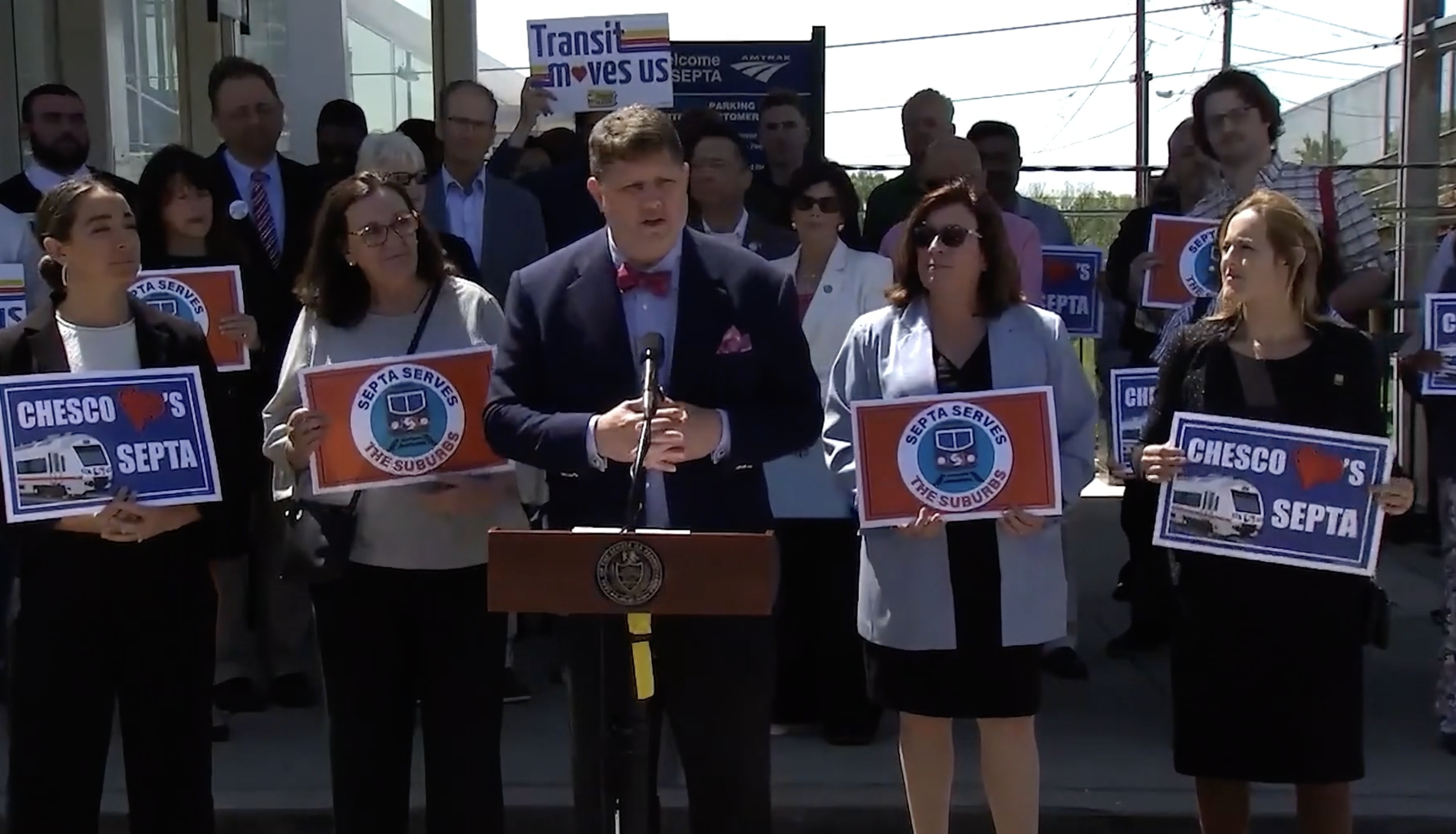Under clear blue skies and amid the hustle of some late morning commuters, a coalition of legislators, labor leaders, municipal officials, and business advocates gathered on the outbound platform of the Paoli Train Station to deliver a unified message: SEPTA is essential not just for transit, but for the future of southeastern Pennsylvania’s economy.
Organized by State Senator Carolyn Comitta, the “Chester County Advocates for SEPTA” press conference drew a diverse crowd reflecting the cross-sector support for sustained, stable transit funding. With the threat of service cuts looming large, the tone was urgent yet hopeful.
“We’re not just collecting headlines, we’re gathering resolve,” said Tim Phelps, Executive Director of the Transportation Management Association of Chester County. “This should not be a crisis. It’s a call for vision. Public transportation helps prime the economic development engine. We stand for SEPTA, and we stand for Pennsylvania’s future.”
Phelps delivered a pointed reminder of what is at stake. “Public transportation is an essential economic development tool,” he said. “The Paoli-Thorndale Line has some of the most attractive, fastest-growing neighborhoods in the region. With the projected elimination of the service, the 122,200 single family homes along the Paoli line will lose a collective $6.9 BILLION of premium loss; lower value can equal lower taxes hence impacting the County, Municipalities, and School Districts.”
But for Phelps, the issue runs deeper than the dollars. “This isn’t just about morning commutes,” he said. “If Route 202 sees a 40% increase in congestion, it is not just inconvenient it’s dangerous. Every minute matters when ambulances are rerouted from western Chester County to hospitals further east. Public transit is a public safety issue.”
Chester County Commissioner Marian Moskowitz emphasized SEPTA’s strides: “SEPTA is delivering results; safer, cleaner and more efficient service for Pennsylvania and we are here today because the time to invest in septa is now.”
State Senators Comitta, Muth, and Kane called for bipartisan collaboration, while Representative Melissa Shusterman reminded attendees that the House had already voted in favor of transit funding and the Senate needed to act.
Donald Hill of the Brotherhood of Locomotive Engineers and Trainmen drove the point home from a labor perspective and their support of safety, support, and families.
For hospitals like Main Line Health’s Paoli campus, the service cuts could mean difficulty for both patients and healthcare workers. And with emergency care already strained from the Brandywine Hospital closure, added congestion on Route 202 and the Route 30 corridor raises life-or-death concerns.
Small conversations dotted the morning from Coatesville’s Linda Lavender-Norris and James Logan to Downingtown’s Corinne Badman, and Rajesh Kumbhardare, Chair of the West Whiteland Supervisors to Bill Martin Tredyffrin Township Manager all speaking to the same truth: local communities need transit to thrive.
As the event concluded, Tim Phelps commented, “We are grateful to Senator Comitta and her team. Today proved that when business, labor, and local leadership unite, we can send a powerful message that public transportation is not optional. It is vital.”



